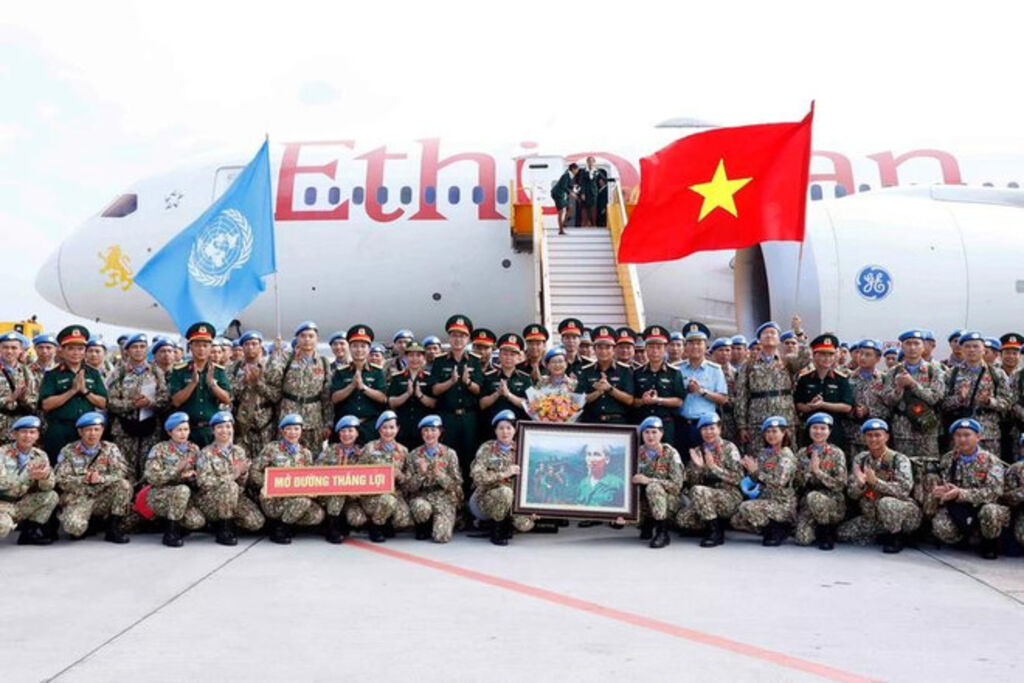 |
| The see-off ceremony for Engineering Unit Rotation No 2 of Vietnam for the UN peacekeeping mission in the UN Interim Security Force for Abyei at Noi Bai International Airport__Photo: VNA |
Vietnam officially began participating in UN peacekeeping operations in 2014 and has steadily asserted its presence in this important global role. However, over the past decade, peacekeeping activities have primarily been governed by sub-law regulations. The absence of a comprehensive legal framework has limited the institutionalization of such efforts. The introduction of the Law on Participation in the UN Peacekeeping Force marks a foundational development, establishing a robust legal framework to guide Vietnam’s continued, proactive, and responsible engagement in international missions.
Comprising 26 articles arranged in four chapters, the draft law seeks to codify the core principles, authority, procedures, and policies governing the deployment of peacekeeping personnel.
Worthy of note, the draft law broadens the scope of participants in the UN peacekeeping forces beyond military and police personnel to include civilian cadres, civil servants, and public employees—a significant step toward the professionalization and internationalization of Vietnam’s peacekeeping force.
General Phan Van Giang, Minister of National Defense, in his presentation of the draft law to the National Assembly, underscored the importance of expanding subjects eligible for participation in these forces to include civilian personnel. He noted that this move would better reflect practical needs and elevate Vietnam’s international standing. Civilian involvement, he added, would enhance Vietnam’s capacity to contribute more broadly to peacekeeping missions, particularly in leadership and policymaking roles at UN missions and headquarters.
Article 4 of the draft outlines five fundamental principles for participation in peacekeeping operations.
First, all activities must be placed under the absolute and comprehensive leadership of the Communist Party of Vietnam, while also falling under the command of the President and the state management of the Government.
Second, these activities must comply with Vietnam’s Constitution and laws, and align with the UN Charter, international law, and treaties to which Vietnam is a party.
Third, Vietnam’s participation in peacekeeping operations must promote independence, self-reliance, peace, friendship, cooperation, and development, while respecting national interests, domestic conditions, and the sovereignty and territorial integrity of other countries as well as promoting gender equality and human rights protection.
Fourth, Vietnam will participate in peacekeeping operations solely for humanitarian purposes and to support post-conflict recovery, based on requests from the UN.
Finally, the deployment of forces will be limited to countries or regions with existing UN missions or within UN-affiliated agencies.- (VLLF)









